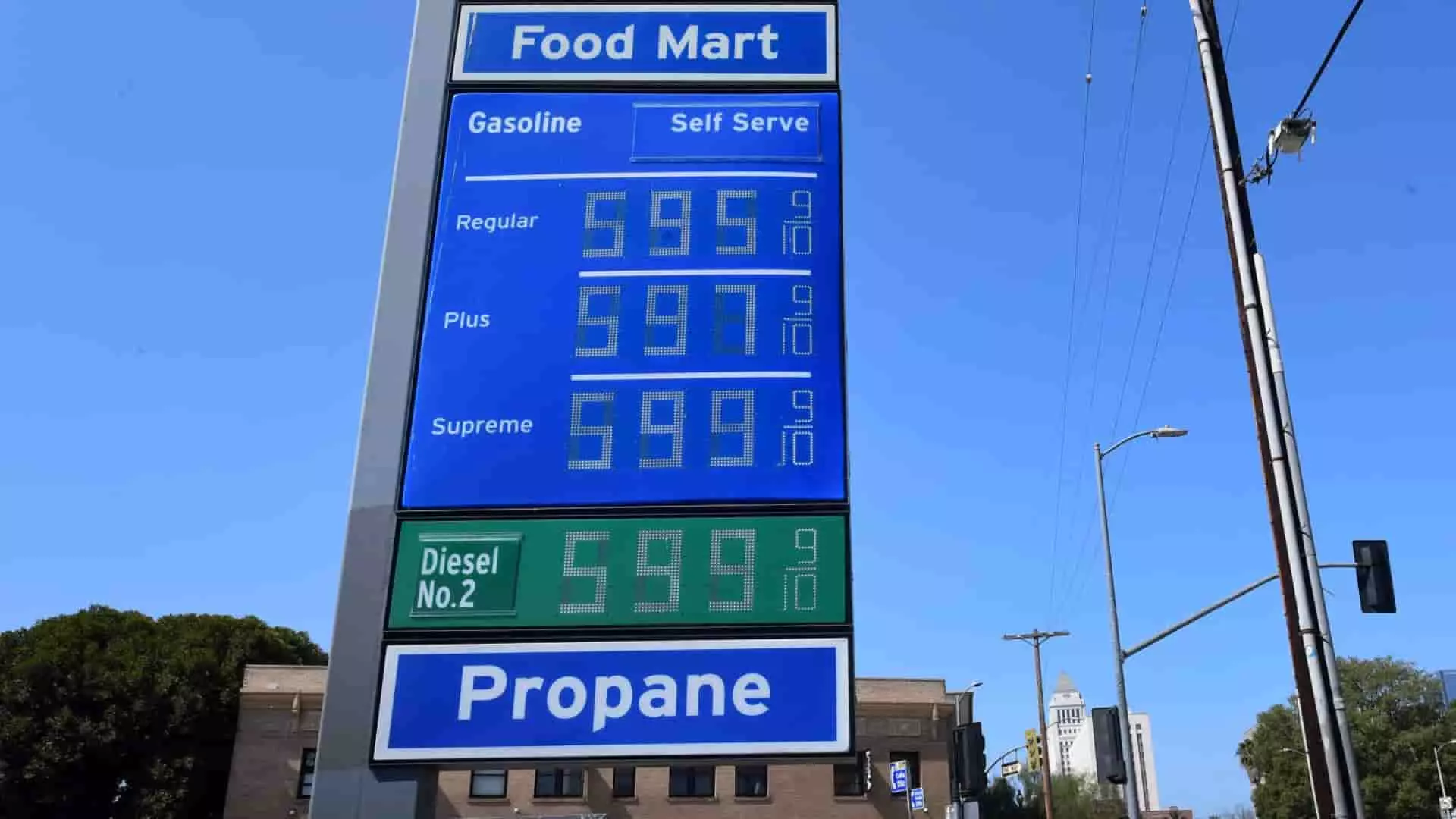
On Monday morning, consumers looking to fill up on fuel saw yet another increase in their price at the pump. The national average has reached $4.06 per gallon, as oil traded above $120 per barrel on Wall Street. The price neared $130 before dropping back to around $120.
Triple A, who tracks the price of gas, said that gas prices are up nearly 45 percent since this time last year, but only in the last week, gas prices rose by eleven percent. This is the first time gas prices have jumped so high since 2008, when oil briefly traded for just under $150 per barrel.
While the price of fuel has risen steadily since early 2021, the events in Eastern Europe have directly effected the latest surge in fuel prices. Traders are predicting that a barrel of crude oil could trade for upwards of $200 by the end of March.
These traders also point to the conflict in Ukraine as a major propellant of the issue.
Bloomberg reported on Monday that “prices to buy call options increased, including at least 200 traded contracts to buy May contracts for Brent futures at $200 per barrel by the end of the month.”
The United States as well as many European countries have laid economic sanctions on Russia as a result of their invasion into Ukraine. Oil prices began surging shortly after. Russia is the world’s third largest producer of oil. However, most countries have not sanctioned Russian oil; ten percent of the oil imported to the United States is from Russia, according to White House Press Secretary Jen Psaki.
President Joe Biden is considering a trip to Saudi Arabia to discuss the increase of oil production there, but many lawmakers as well as the average American is pleading with the Biden Administration to relax restrictions put on American oil companies regarding drilling on American soil.
In 2019, the President and CEO wrote an article published in The Washington Post regarding the cleanliness of American oil production. Mike Sommers described how “U.S. carbon dioxide emissions have fallen over time,” even though the population of the United States has grown and is utilizing about three percent more energy than in 2008.
Sommers said, “the U.S. has reduced carbon emissions more than any other country since 2000.” Sommers pointed to the revolution of shale and fracking.
Sommers also claims that the use of shale oil – and our selling to foreign allies – is actually beneficial to the environment worldwide. When the countries we sell to utilize shale rather than coal to power homes and provide heat, the carbon footprint is greatly reduced.
If all the above is true and American can produce clean fossil fuel energy, then the Biden Administration should be willing to relax drilling regulations so that American companies can safely provide crude oil not only for American citizens, but for our allies as well.
Speaker of the House Nancy Pelosi has said that she is in favor or a ban on Russian oil imported into the country. Senator Joe Manchin (D-WV) is calling for the same. They aren’t the only Democrats on Capital Hill that are advocating for stopping the importation of oil from Russia.
However, the issue remains – very few lawmakers are encouraging the Biden Administration to relax regulations so that American oil companies can drill and provide energy not only for American citizens but other countries across the world. Plus, we can do it cleanly. Political pundits say that the Biden Administration won’t even consider this option. Instead, Joe Biden has worked with other countries to obtain 60 million barrels of crude from the Strategic Reserve, and he’s set to head to Saudi Arabia for talks regarding oil production, according to Axios.
As a moderate, President Biden is working to appease the members of his party, understandably; however, Americans are looking at $7, $8 per gallon gasoline at a time when the price of groceries and other everyday essentials is surging. President Biden’s actions could, however, effect his party in November during midterms.





